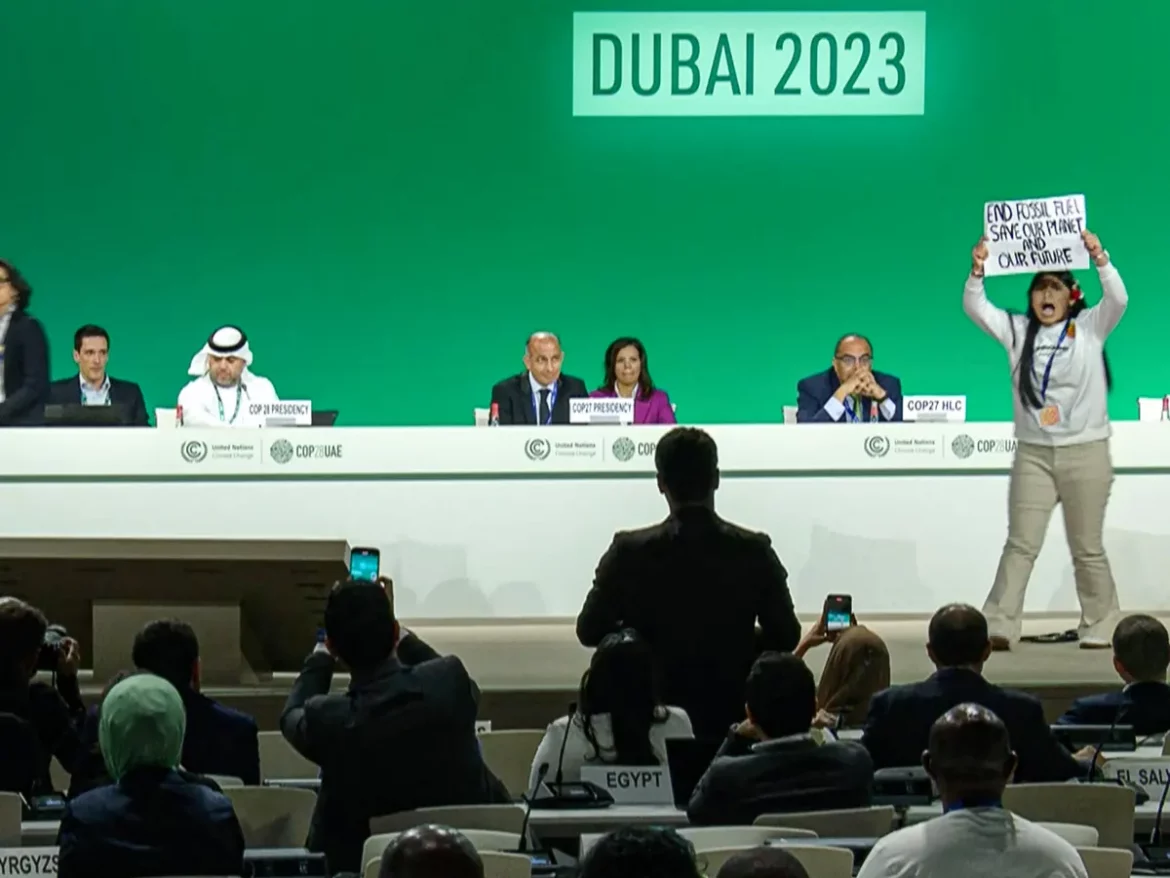Delegates at the UN’s Cop28 summit have criticised a draft deal to cut global fossil fuel production as “grossly insufficient” and “incoherent” and will not stop the world from facing dangerous climate breakdown.
The text put forward by the summit presidency after 10 days of wrangling was received with concern and anger by many climate experts and politicians, though others welcomed elements of the draft including the first mention in a Cop text of reducing fossil fuel production.
According to reports, some countries are despairing that the text does not require a full phase-out of fossil fuels.
Cedric Schuster of Samoa, who is the chair of the Alliance of Small Island States, said: “We will not sign our death certificate. We cannot sign on to text that does not have strong commitments on phasing out fossil fuels.”
Recall that the Cop28 presidency released a draft text in the early evening on Monday, which called for “reducing both consumption and production of fossil fuels, in a just, orderly and equitable manner, so as to achieve net zero by, before or around 2050, in keeping with the science”.
Read also: Report recommends UK workers ‘should get day off’ if workplace is hotter than 30C
The text avoids highly contentious calls for a “phase-out” or “phase-down” of fossil fuels, which have been the focus of deep disagreement among the more than 190 countries meeting in Dubai. But instead of requiring fossil fuel producers to cut their output, it frames such reductions as optional, by calling on countries to “take actions that could include” reducing fossil fuels. “That one word ‘could’ just kills everything,” said Eamon Ryan, Ireland’s environment minister, adding that the EU could walk out of the talks if the text did not improve.
“We can’t accept this text,” Ryan said. “It’s not anywhere near ambitious enough. It’s not broad enough. It’s not what parties have been calling for … we have to stitch climate justice into every part of this text and we are not anywhere near that yet.”
The text is expected to form the key outcome of this fortnight of fraught talks on the future of climate action, which are scheduled to end on Tuesday morning in the United Arab Emirates. If the language on fossil fuels survives an expected onslaught from the negotiators of big oil-producing countries, it would mark the first time that countries were being asked under the UN framework convention on climate change to reduce their fossil fuel production.
Story was adapted from the Guardian.
